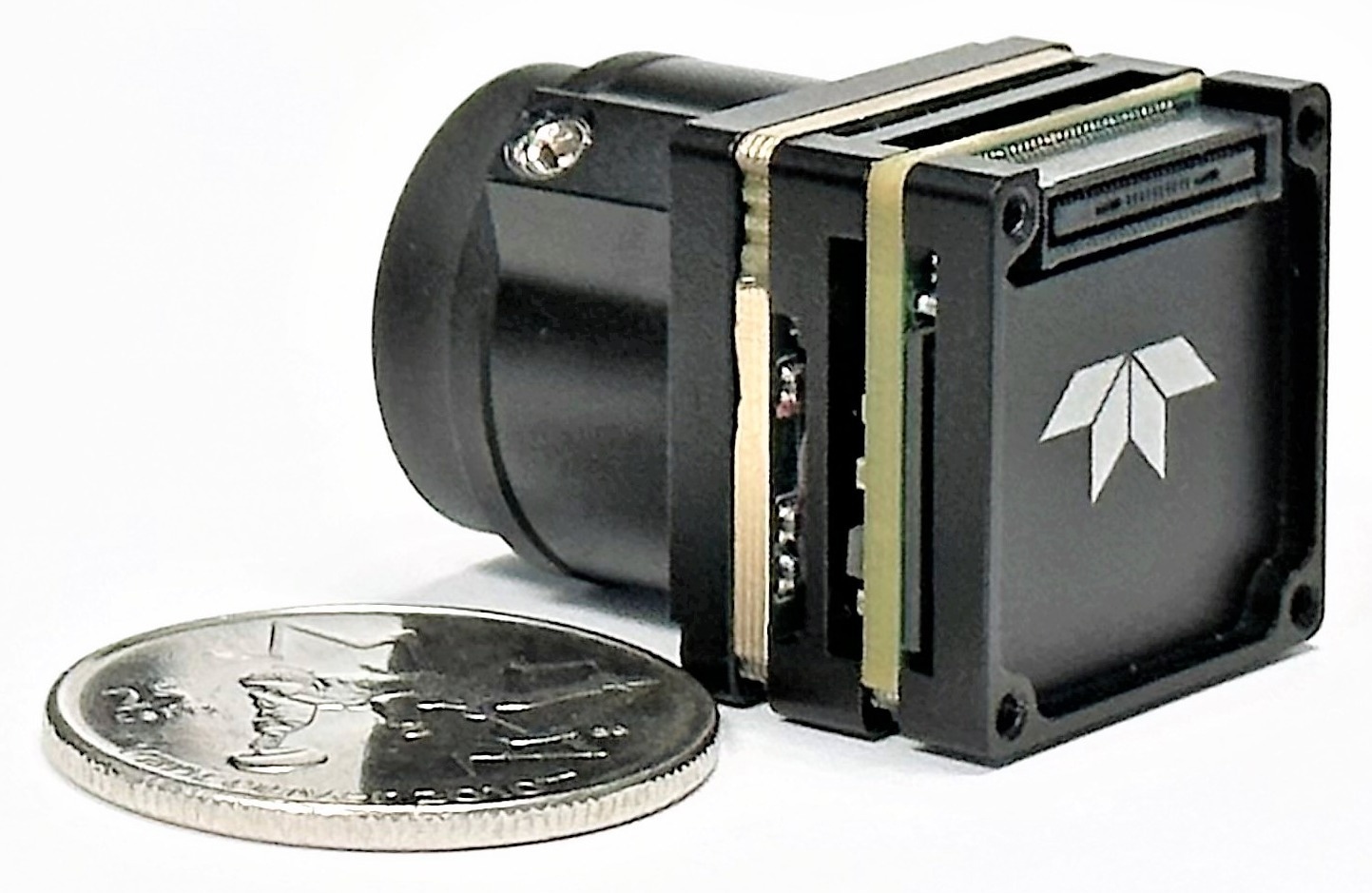Teledyne DALSA, a Teledyne Technologies company and global leader in machine vision technology, is pleased to announce a shutterless version of its MicroCalibir™ Long Wave Infrared (LWIR) compact camera platform.
 The new shutterless version of the MicroCalibir provides improved SWaP. Image Credit: Teledyne DALSA
The new shutterless version of the MicroCalibir provides improved SWaP. Image Credit: Teledyne DALSA
Developed and manufactured in Canada, the small and lightweight MicroCalibir platform is the result of the latest advances made by Teledyne DALSA’s integration of their in-house 12 μm microbolometer pixel technology with a deep-ADC ROIC circuit. This novel ROIC design results in a 1000 °C intra-scene temperature range at a sub-40mK NETD.
This newest shutterless version of MicroCalibir provides improved Size, Weight, and Power (SWaP), and uninterrupted image acquisition with no acoustic noise or possibility of shutter fatigue. This makes it easier to withstand high levels of vibration or g-shock which are crucial factors in applications such as smaller Hand-Held Thermal Imagers (HHTI), Thermal Weapon Sights (TWS), high integration surveillance, and small drone applications.
For easier integration, MicroCalibir is supplied without a housing and with an M18 interface (for QVGA video format) or M24 in VGA format. The new model is also smaller and lighter than the standard MicroCalibir, measuring only 21 mm x 21 mm x 12.9 mm with lens mount and electronics boards, and weighing only 10 grams. This enhances SWaP optimization without sacrificing NETD -sub 40mK levels or image quality performance. This makes it ideal for applications where each gram of weight is crucial for saving on battery life and for fitting into imaging system designs where space is tight.
The shutterless MicroCalibir comes with an up-to-date version of the chip-on-board package that enables optimum thermal integration with the best form factor. It also provides dedicated image correction, which has been developed without compromising on SWaP characteristics and keeps the power consumption at approximately 1 W in VGA format.
Later this year, the MicroCalibir family will further expand with the introduction of a radiometric version for applications that require temperature information.